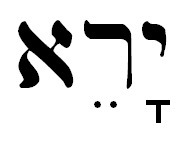by Lois Tverberg
Who may ascend into the hill of the LORD? And who may stand in His holy place?
He who has clean hands and a pure heart. (Psalm 24:3)
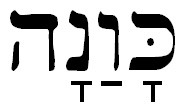 The prayers that Jesus and Paul prayed were a combination of spontaneous petitions and traditional prayers that were prayed at certain times of day. One of them that is still prayed today is called the Amidah or “Eighteen Benedictions.”1 It is quite lengthy, and consists of prayers for all the various concerns of the Jewish people. For thousands years since Jesus lived, these petitions have stayed nearly the same.
The prayers that Jesus and Paul prayed were a combination of spontaneous petitions and traditional prayers that were prayed at certain times of day. One of them that is still prayed today is called the Amidah or “Eighteen Benedictions.”1 It is quite lengthy, and consists of prayers for all the various concerns of the Jewish people. For thousands years since Jesus lived, these petitions have stayed nearly the same.
In contemporary Protestant culture, we tend to disdain rote prayer, preferring the intimacy of spontaneous prayer and feeling that a repeated prayer is empty and hollow. We wonder how a person could avoid just “going through the motions.” The answer is a concept that the rabbis developed known as Kavanah. The word means “direction,” “intention,” or “devotion,” and the idea behind praying with kavanah is that you set the direction of your thinking toward God, and toward praying the memorized prayer “with all your heart.”
A person who has kavanah focuses his entire being on prayer, and is undistracted by the chaos around him. He may have said the same prayer a thousand times, but his mind is sunk so deeply into the words that he is experiencing new insights and feelings from them today that he has never experienced before.
In synagogues, above the ark that holds the Torah scrolls, there is often a plaque that says, “Know before whom you stand.” That is just what it means to have kavanah in prayer: to have a sense of standing in the presence of God, to know that you are addressing the sovereign Lord of the universe.
When I used to pray after crawling in bed, I would often fall asleep before finishing my prayer. After thinking about the lack of reverence this has for God, I now make myself kneel or stay awake in some way, or pray at a time of day when I’m more awake. He deserves our best, not our least efforts in prayer.
Kavanah can go beyond prayer as well – our lives should also show it too. We should live each hour and day with devotion and intention, being aware of God’s presence all around us. When we do this, our lives will truly be the reflection of Christ, whose every desire was to please and honor God in every way.
~~~~
See Listening to the Language of the Bible, by Lois Tverberg and Bruce Okkema, En-Gedi Resource Center, 2004. This is a collection of devotional essays that mediate on the meaning of biblical words and phrases in their original setting.
For a friendly, bite-sized Bible study of five flavorful Hebrew words, see 5 Hebrew Words that Every Christian Should Know, by Lois Tverberg, OurRabbiJesus.com, 2014 (ebook).




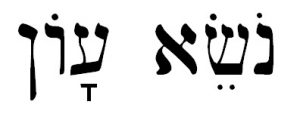



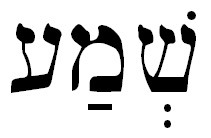

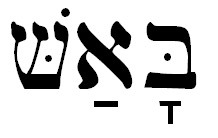

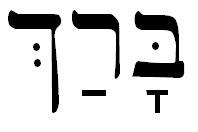
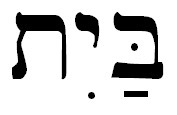
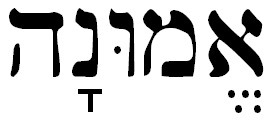
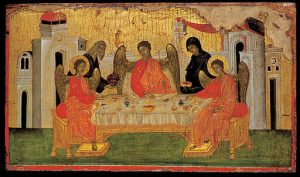 “Know therefore that the LORD your God is God; he is the faithful (emunah) God, keeping his covenant of love to a thousand generations of those who love him and keep his commands. “
“Know therefore that the LORD your God is God; he is the faithful (emunah) God, keeping his covenant of love to a thousand generations of those who love him and keep his commands. “